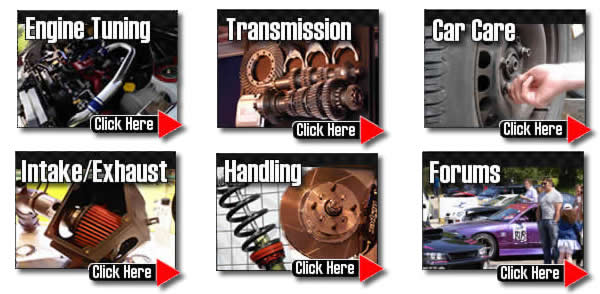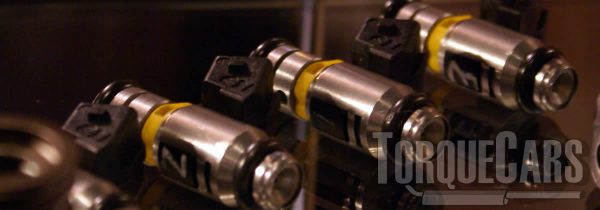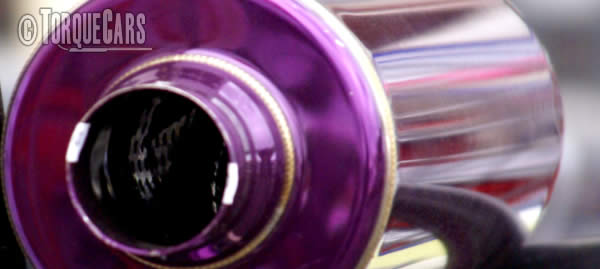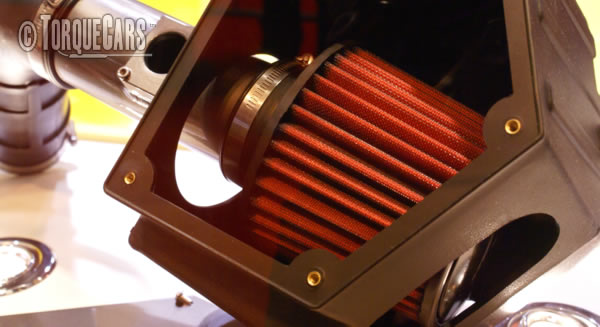Tuning the Ford Falcon
"Tuning guide to the greatest Ford Falcon modifications."
The Falcon is a awesome tuning project to try. Think carefully and research Falcon tuning to avoid making the usual costly mistakes we hear about.
The Falcon name has had a long production run in North America and Australia, with a few revisions and adjustments starting out in 1960.
The early cars were very different to the later ones, and for information we are focusing on the more recent Australian versions prior to 2016, although some of these tuning tips will work well on previous models.
Herein we review Falcon tuning and show the optimum modifications. Ford Falcon are fantastic to work on and with carefully picked performance parts like a remap, turbo kits and camshafts you will dramatically enhance your driving fun.

Handling/Suspension upgrades
Many Falcon owners uprate the handling of their cars with tuning suspension upgrades as a priority, this will certainly increase your enjoyment of the car.
Good suspension tweaks that usually enhance handling for the Falcon include a couple of degrees negative camber and 1-1.5 degrees of toe (set out to improve cornering or in for better stability) on the front wheels.
Drop the car by as much as 25mm - 36 mm. and fit modified stiffer dampers, bigger drops will need other modifications in most instances.
For sharper enhanced stopping put better quality pads and match this with better brake discs.
We should point out that motorsport brake pads will be noisy and will need to be hot before they are effective.
On a road car the brakes are only used rarely and won't be as effective at slowing you up so source friction pads which don't need to be really hot.

Top end power should be your overall aim on the Falcon with a nice fat peak torque band.
Sadly with smaller engine sizes you are wasting your time spending money on modifications, so if this applies to you get yourself an engine swap then apply the following mods.
Tuning modifications.
The following performance kits are usually fitted by our members, decide how far you wish to go in your tuning project before you get started.
5th Generation (1988–1998)
- EA Falcon
- EB Falcon
- ED Falcon
- EF Falcon
- EL Falcon
6th Generation (1998–2010)
- AU falcon EA169
- BA Falcon
- BF Falcon
Seventh generation (2008–2016)
- FG Falcon
- FG X
Getting the correct grade of uprated upgrade kits for your planned usage of the car is a time and money saver.
Stage 3 motor sport mods just won't work well on the road making the car difficult to drive.
Please watch our introduction Video tutorial to car tuning. Be sure to subscribe and support our new channel.
How to tune your car
- Improve the handling
Focus on Suspension improvements, such as coilovers and make sure the bushings are in good order and that the alignment is correct. Then focus on improving the brakes, with a big disk brake conversion kit and fast road brake pads.
- Remove restrictions
Focus on the intake and exhaust with filters being the common point of restriction in a tuned car. Intercoolers may also become restrictive on turbo engines so this may also need to be uprated.
- Burn more fuel & air
Increase the fuelling so it matches the air coming into the engine. The ratio is important so you need to improve the fuel pump and injectors, so the head mods, big valve conversions, fast road camshafts and forced induction upgrades extra supply of air is adequately met.
- Test and replace any weak parts
Weak areas are commonly the clutch, the turbocharger and pistons and crankshaft in a highly tuned engine. Makes sure these components will cope with your power aspirations.
- The Tune or Remap
A cars ECU controls the fuel, timing, spark and even the turbo in some cases, so to fully extract your gains you should remap the car last and this will fully release the power. Some cars are easy to map, and others require piggyback ECU's or aftermarket ECU's but this is the most vital step of your tuning project.
Modifying to Stage 1:
Sports exhaust, Alloy wheels, Suspension upgrade (drop 25mm - 36 mm.), Remap, Panel air filter, Lighter flywheel.
Modifying to Stage 2:
high flow fuel injector, Power/Sport clutch, fuel pump upgrades, Ported and polished head, Fast road cam.
Modifying to Stage 3:
Sports gearbox, Engine balancing, Adding or upgrading forced induction (turbo/supercharger), Competition cam, Internal engine upgrades (pistons/head/valves).
Peak power is good on competition cars but for a drivable and fun car you need a wide power band and perhaps extending the rev range.
The point of our guides is to give a little insight into the world of car tuning mods and point you in the right direction, our forum is best place to go if you need more detailed advice and tips on your modified car project, the best modified parts and all aspects of modding cars.One of the best mechanical upgrades you can do to your NASP engine is to fit a fast road cam .
The intake and exhaust durations play a huge factor in your cars power band, but be careful here, getting this wrong can upset the idle and make the car hard to drive in traffic.
You'd need to follow a camshaft upgrade with other mods and finish with a reflashed ECU to fully realise your gains.
Don't forget to pay attention to the fuelling when you are increasing the power - it makes the car more thirsty.
If you find you suffer from flat spots and surges after your tuning mods you should check the fuelling and try a higher octane fuel as well.  Larger injectors will enable you to supply sufficient fuel to the engine.
Larger injectors will enable you to supply sufficient fuel to the engine.
Uprate the fuel pump to cope with the extra fuel requirements of your tuned Falcon's uprated injectors.
Intake and Exhaust Tuning.
The next area for modification is the intake and exhaust.  Please note that WE DO NOT FEEL YOU GET POWER GAINS FROM INDUCTION KITS, unless you have tuned your car with over 30 percent more power and are finding that the standard air intake has become limited.
Please note that WE DO NOT FEEL YOU GET POWER GAINS FROM INDUCTION KITS, unless you have tuned your car with over 30 percent more power and are finding that the standard air intake has become limited.
Induction kits can work well on turbo engines and larger engines (if supplied with a suitable cold air feed or air box), generally though we'd just recommend for Falcon engines you should go with a sports panel air filter preferably made from cotton.

Do not go with the widest exhaust you can get this will reduce the exhaust flow rate - the best for power gains are usually between 1.5 to 2.5 inches. It is the shape and material more than the bore size.
Head work including a gas flow (ported and polished) and 3 or 5 angle valve job will really help to release the potential of the engine. When you heavily modify your Falcon you will usally see that the standard clutch starts to fail so get an uprated clutch. The best mods in our opinion for your Falcon are a remap especially on a turbo, a fast road camshaft and sports exhaust, with a good air intake.
Turbo engines are just crying out to be remapped. You will see phenomenal power gains on most modern turbo engined cars including diesels making a remap one of the most cost effective and phenomenal modifications for your money.
We've also seen some tuners toying with twin charging applications and making some very high power gains.
The most impressive power gains for NASP engines usually involve the addition of forced induction. Superchargers are generally easier to add than a turbo. It is more challenging to map a turbo as the boost increases exponentially with revs.
The nice correlating boost and rpm characteristics of the supercharger make them easier to map. Decreasing the engines compression ratio will allow you to add forced induction, water injection may also help prevent detonation.
Alloy wheel upgrades.
The benefits of alloy wheels include a lower unsprung weight and more efficient brake cooling via the extra air flow they allow. If you are serious about performance then you will need to carefully choose your tires - ideally with a track legal slick tire. The downside to large alloys on your Falcon is that you're altering your final drive ratio and this will have a detrimental effect on acceleration and performance.
For this reason we would advise sticking to a maximum wheel size of 18inches, although we know some of our members have gone larger than this with no problems.
For more information on Tuning your car please join us in our friendly forum where you can discuss Falcon options in more detail with our Falcon owners. It would also be worth reading our unbiased Ford tuning articles to get a full grasp of the benefits and drawbacks of each modification.
Please help us improve these tips by sending us your feedback in the comments box below.
We love to hear what our visitors have got up to and which mods work best for them on each model of car. Comments are used to improve the accuracy of these articles which are continually updated.
If you liked this page please share it with your friends, drop a link to it in your favourite forum or use the bookmarking options to save it to your social media profile.
Check out TorqueCars new YouTube channel, and see their awesome new content...
Feedback
Please use our forums if you wish to ask a tuning question, and please note we do not sell parts or services, we are just an online magazine.
Help us improve, leave a suggestion or tip
